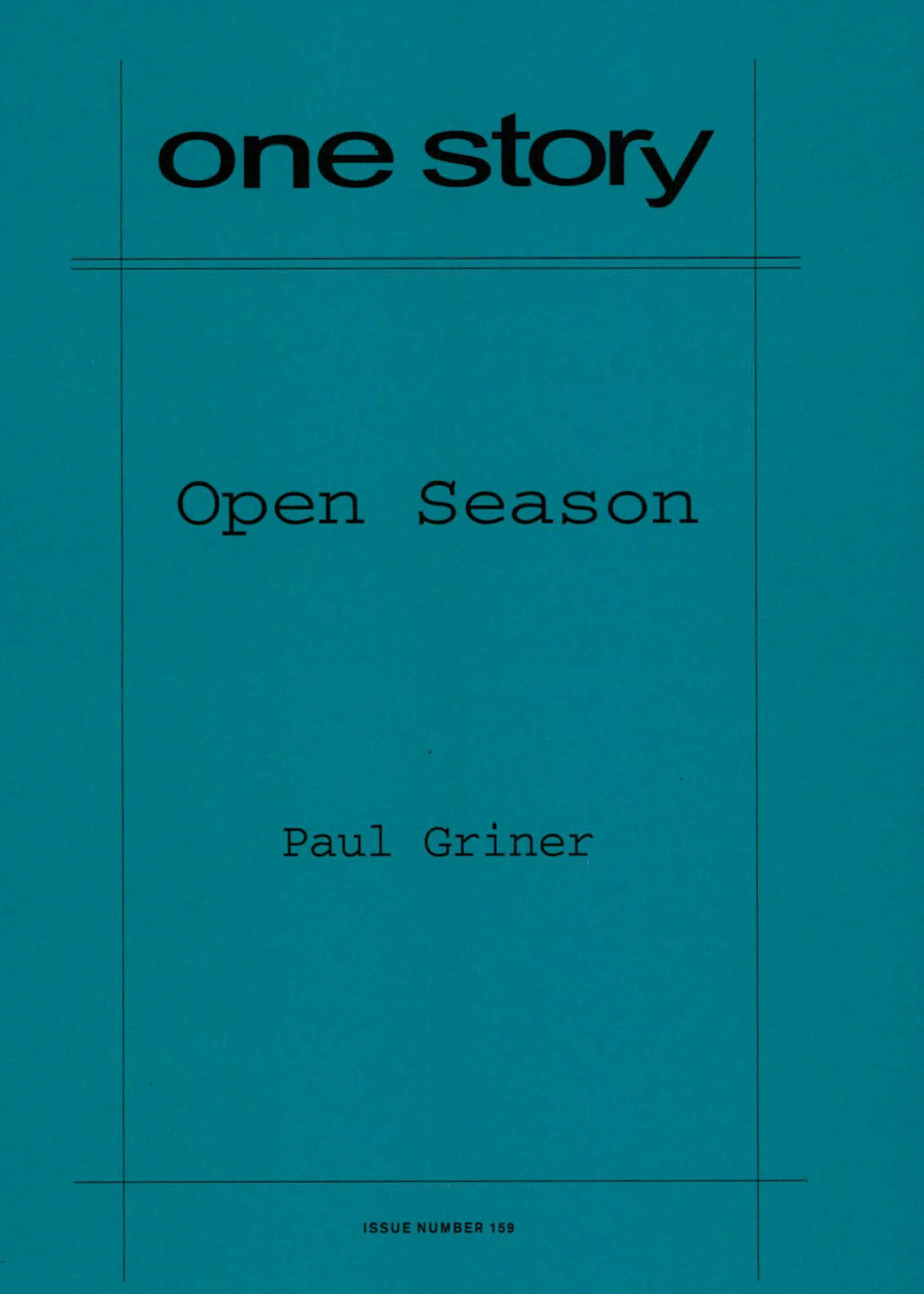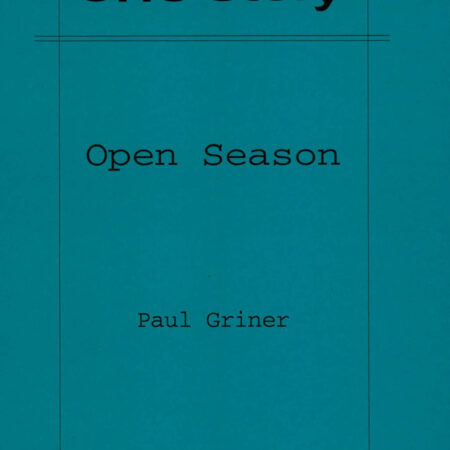
Open Season
$2.50
51 in stock
Excerpt
The morning headline said that the season had just opened, which of course we knew; I’d paid for my permit and stored my clothes overnight in a dry-cleaning bag filled with sweaty tee-shirts, a box of doughnuts and some bus exhaust, not easy to come by but absolutely crucial if I didn’t want to spook my prey. And I was sure Juan had done something similar, then indulged in one of his many superstitions, perhaps putting on his right sock and shoe before touching his left ones, or wearing his yellow undershirt, or scribbling on his tongue with pens until he could taste the ink. Most of the people in Hopping John’s diner probably had too, though few would care to admit it. The hunting gene ran deep, even if over the years a lot of people had grown wary of it, or ashamed.
Paul Griner
Paul Griner’s books are The German Woman and Collectors (novels) and Follow Me (stories). His work has appeared in Playboy, Tin House, Ploughshares, Zoetrope, Prairie Schooner, New York Tyrant, The Indiana Review, and Narrative, and has been translated into half a dozen languages. He’s a professor at the University of Louisville.
Q&A by Hannah Tinti
- HT: What were your guidelines for creating this alternative world, where words are hunted? Did you start with any rules? Or was it the characters that developed the plot?
- PG: The second, definitely. It was only after I was done that I began to try to make sense of this world, and to make sure it made sense. And that process really accelerated during the editing. I had to spend a lot of time thinking about why certain things happened, or what they meant, logically, for the creation of this slightly off-kilter reality. Earlier versions had many more off-shoots, which in the end didn’t help the story. You did a great job making sure I knew what I was about.
- HT: Do you have any hunting experience yourself? Or fishing?
- PG: Plenty of fishing, less hunting. My great Uncle, after whom I’m (indirectly) named, was a tool and die maker, and used to make custom shotgun chokes and barrels (I still remember the scents of oil and metal shavings from his shop, the way the freshly bored chokes felt and smelled), and his brother-in-law (my grandfather) taught me to shoot on farmland in Upstate New York as a child, often with those custom barrels. My dad (after whom I’m directly named) taught me to fish and took me fishing everywhere—freshwater, deep-sea, etc. To this day, he’s a much better fisherman than I am, but I’m great at cleaning them. Some of my favorite childhood memories are of when the Blues were running and we’d catch, gut, clean, and cook them up within an hour. Most Thanksgivings we ate more Bluefish than turkey. As an adult, most of my experiences with guns have been on the wrong end of the barrel, so perhaps that’s scared me off from hunting.
- HT: The physical details of the words are so memorable—the fawn scent of Kentucky, the slipperiness of Silicone. Also, the elements of the society (Trading Cards, The Word Institute) are incredibly sharp. Do you find that description helps ground your readers’ imaginations, especially when entering some of the more surreal aspects of the story?
- PG: I like my worlds to be tactile, whether they’re the ones I live in, write, or read. I think that’s especially important in worlds that are like, but slightly different from, our own. The writer needs to make sure that readers don’t feel lost. Think how precise the world is that Alice finds herself in, down the rabbit-hole. Bizarre, exhilarating, and utterly believable.
- HT: Do you think the government will succeed in “disappearing” all the words, as they continue to get rid of phone booths and mailboxes?
- PG: They’ll try, but I don’t think they’ll succeed. People are incredibly wily and resourceful. I have a great reservoir of optimism about that. My great uncle, the tool and die maker, was orphaned at a young age, and ended up at an orphanage that taught all its residents a trade. Try as he might, he couldn’t make a simple bolt and nut. Finally, frustrated, he stole one from the display case and gave it to his teacher, who spun the nut on the bolt, off again, on again, and handed it back. That’s perfect, Paul, he said. Now go make one just like it. Fifty years later, my Uncle loved to tell that story on himself, and it always made me laugh. Eventually he figured it out, and went on to become quite good at what he did.
- HT: The narrator of “Open Season” has been searching for the word Lavender. What word would be your prized trophy, if you were a professional word hunter?
- PG: Tough question. Like most writers, I love words, and it’s hard to narrow it down to one. I’d probably have at least a phrase I was after, and maybe even a clause, both of which would be different, depending on the season. In the summer it would have to do with coolness and some quenching drink; in the winter, warmth and the missing sun.
- HT: How long did it take you to complete this story?
- PG: This is always a difficult question for me. The first draft was swift, but then it went through many drafts, lots of tinkering, much refining. It also got put away for a while. So, overall, I’d say a couple of years.
- HT: What is the best bit of advice about writing you have ever received?
- PG: Leap. Nothing will ever be as good as you want it to be, so you might as well aim high. Not good hunting advice, but words are a bit different than game.
